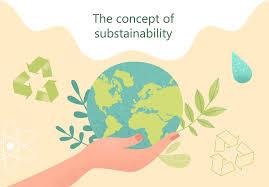Sustainable development is the key to balancing human needs and environmental preservation. It focuses on meeting the requirements of the present generation without compromising the ability of future generations to meet their own needs. This approach emphasizes three main pillars: environmental protection, economic growth, and social equity. Reducing resource wastage, switching to renewable energy, and promoting eco-friendly practices are essential steps toward sustainability. For instance, adopting solar power and wind energy reduces dependence on fossil fuels, which are major contributors to pollution and climate change. Similarly, conserving water and protecting biodiversity ensure that nature’s resources are available for years to come. Education and awareness play a significant role in fostering sustainable habits. Individuals can contribute by recycling, reducing single-use plastics, and supporting green initiatives. Governments and organizations must also implement policies that encourage sustainable industries and equitable resource distribution. By prioritizing sustainability, we can create a world that thrives environmentally, socially, and economically, ensuring a healthier planet for future generations.

